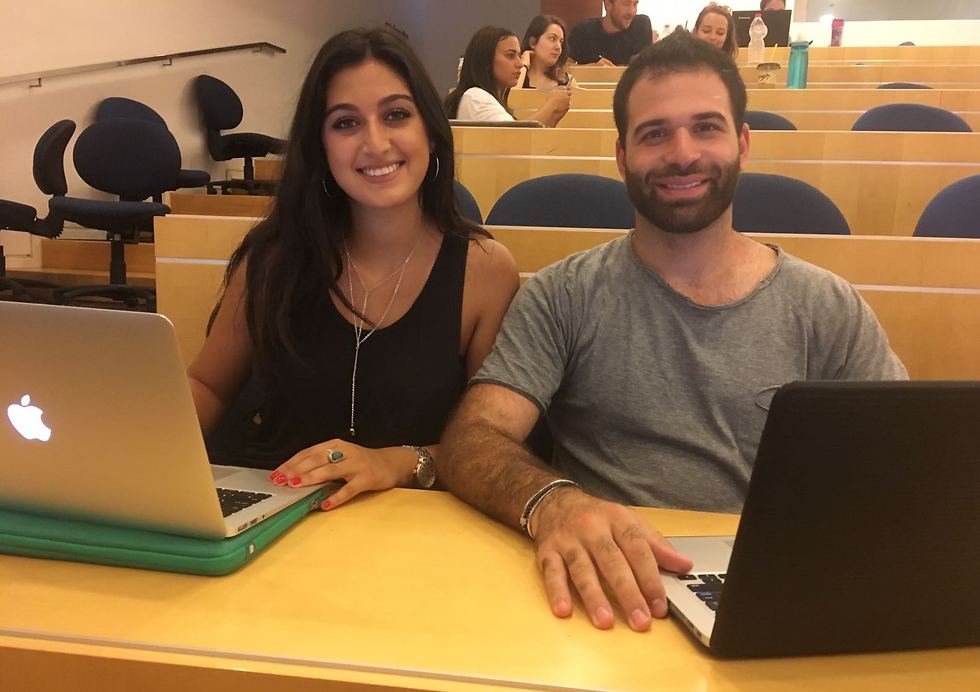

WATCH: 'Don't go to Israel... you may never want to leave'
The video—a class project that attempts to turn negative beliefs about Israel on its head—features shots of Israel's historical sites, natural scenery, rich culture, societal aim toward tolerance and acceptance, the empowerment of Israeli women, and more.
A new PR video making the rounds on social media over the past 24 hours provides viewers with a unique "travel warning": Don't go to Israel... you may never want to leave.
The video features clips showcasing Israel's historical sites and beautiful scenery, its rich culture and tolerance and acceptance of all, the empowerment of Israeli women, and more.
The video shows the viewer that Israel is the opposite of its common global image, as shots of female fighter pilots in the IAF and Israeli judo champ Yael Gerbi, views of Mount Hermon and Israel's beaches, Tel Aviv Pride parade and Israel's rich culinary culture are shown across the screen.
The video has already garnered some 400,000 views on Facebook, about 4,000 likes, over 3,700 shares and hundreds of comments.
Students Noy Leyb, 26, and Maya Gilady, 21, are the video's creators. Both of them made aliyah to Israel—Leyb emigrated from Canada at age 18 to enlist in the IDF, while Gilady emigrated from Colorado to study in Israel. They met while studying at the IDC Herzliya's International School.
They started working on the video 10 months ago and it debuted on Tuesday.
"This project is part of a workshop we're doing (at the IDC) about Israeli hasbara (public relations), in which each student needs to find a way to influence people around the world, because Israel is not very successful at doing that," Leyb said.
How did you get the idea?
"We were thinking about how we could change the minds and perspective of as many people as possible. We travel abroad a lot and hear quite a few horrible assertions about Israel, some of which we featured in the video. People don't see Israel as a developed country or a 'startup nation,' they lump us with Iraq, Syria and Lebanon. They don't even differentiate between the countries and think everything around here is a desert."
Speaking to people abroad—both Jews and non-Jews—Leyb learned that many young people hear about the way Israel's neighboring countries treat women or LGBTs and are certain the same applies to Israel. "Even Canadian Jews I got to speak to think the only history here is the Arab one," he noted.
So who is your target audience?
"The video is obviously not meant for people who live in Israel. We want to reach people abroad who have no idea what Israel is all about and try to change their minds about Israel. Even if they don't want to come here, they should at least know there are normal, good people living here, because the opinions about Israel are among the most negative in the world. People who come for a visit are always pleasantly surprised."
Why did you take on the job of Israel's Foreign and Tourism ministries?
"As cheesy as it sounds, Israel was always in our hearts while growing up. We love Israel very much, and I think the change should come from the people. I'm not trying to do the job of the prime minister or foreign minister who—with all due respect to their work—are paid to do this job. We're doing this without expecting anything in return because we truly want to change the situation," the enthusiastic Leyb explained.
The two funded the entire project out of their own pockets, from traveling to film footage to renting out equipment and paying for the right to use the music in the video.
Why did you choose this tactic of creating a seemingly negative video?
"Had we done a regular video about how amazing and liberal Israel is, there is no way that as many people would've watched it. People love the 'warning,' they love to watch things they're not supposed to watch, things that deter and scare," Leyb said.
The duo further realized that this tactic wins them different types of audiences. "A Jewish or Israeli audience would want to watch the video because they wouldn't understand why these things are being said about Israel, and they would be curious to find out. On the other hand, the anti-Israel audience would want to watch the video thinking it too was anti-Israel, and then they'd watch it and be surprised," he explained.
What do you want to achieve with this video?
"If we could change what people abroad think about Israel and make them come here in this way, then we've achieved our goal. Every view excites us and every share warms our hearts. We wish next time someone says something bad about Israel somewhere around the world, there would be a guy or a girl who immediately jump in and say it wasn't necessarily true, because they had watched out video."
What kind of response have you received so far?
"There are a lot of negative comments of people saying bad things about Israel, claiming we forgot to add information that is not flattering to Israel, and asserting Israel is not that good. But these comments are still a minority; about 12 percent of the comments are negative and the rest are positive. We had someone tell us, 'I never thought Israel was like this, thanks for changing my mind,' or 'you have a beautiful country, we're going to get a flight ticket to Israel.' With that, we've achieved our goal."





















